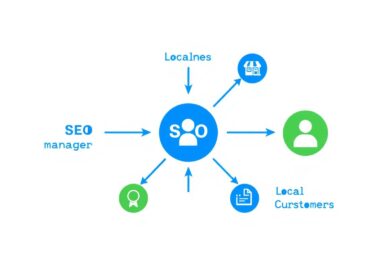Improve Your Website SEO: Tips for Higher Rankings

Table of Content
Being a small business owner in Australia is tough. There’s so much online competition. Getting your website noticed can be hard. But, with smart SEO strategies, you can improve. You’ll be able to boost your visibility and draw in new customers.
In this article, I’ll show you the tactics I use. They’ve helped my clients improve their SEO. You’ll learn tips for beginners and those wanting to refine their strategy. These insights can help you gain more organic traffic and leads.
Key Takeaways
- Understand the fundamentals of SEO and how to conduct effective keyword research
- Optimise your website’s content and structure for improved on-page SEO
- Leverage off-page strategies like link building to boost your domain authority
- Stay up-to-date with the latest SEO trends, including voice search and local SEO
- Work with a trusted SEO agency or consultant to get the best results for your business
Understand the Fundamentals of SEO
Effective keyword research is key to successful content optimisation. Find the keywords your audience searches for. This makes your website’s on-page seo meet their needs, laying the foundation for all your SEO work.
Keyword Research: The Foundation of Effective SEO
Good keyword research means finding what your customers look for. You learn how they think and what they need. This lets you make content that appeals and ranks well in searches.
Start by listing keywords, then use tools to grow and pick the best ones. Look at search volume, competition, and how relevant they are. Choose keywords that match your goals and can rank well.
On-Page Optimisation: Making Your Content Search Engine Friendly
After finding your target keywords, work on on-page seo. Make titles, meta descriptions, and headings that use these keywords. It boosts your visibility. Also, make sure your content is clear and uses images, alt text, and links right. This helps search engines understand and rank your pages.
Keep updating your on-page optimisation as search engines and what users like change. Follow the newest tips to keep your website doing well.
“Effective keyword research is the foundation for all your content optimisation efforts. It’s the key to understanding your audience and creating content that resonates with them.”
Want to know more about boosting your on-page seo for better results? Talk to our SEO team or send us an email on hello@defyn.com.au.
Improve your website SEO with Off-Page Strategies
Good SEO means more than just updating your website. To climb the rankings, you must use off-page strategies too. This means creating quality backlinks and using local SEO among other tactics.
Mastering Link Building
Getting other websites to link to yours is a crucial SEO step. This process is called link building. It tells search engines that your content is good. Here are some ways to build links:
- Ask top names in your industry to let you write on their blog.
- Join online groups and share what you know, along with links back to your site.
- Be in online directories for local SEO.
- Work with others in your field to create things together and share them online.
- Find broken links on other websites and suggest your content as a fix.
Leveraging the Power of Local Search
Local SEO is crucial for businesses in a specific area. It helps you stand out to customers nearby. Here’s how you can enhance your local SEO:
- Make your Google My Business listing look its best.
- Keep your business info the same on all directories.
- Ask happy customers to leave great reviews online.
- Create content that people in your area will love.
- Support local events and causes.
With a mix of off-page and on-page SEO, you can really improve how well your website does in searches. If you need more advice on SEO, get in touch with us. We’re here to help.

Conclusion
Improving your website for search engines is a constant effort. The steps I’ve shared will help you climb the search rankings and get more visitors through searches. Keep an eye on new SEO trends like voice search to keep your site competitive.
Need more help with SEO? Email our SEO team at hello@defyn.com.au. We can create a SEO plan just for you, tackling your business’s goals and hurdles.
Focus on making your site technically sound, its content rich, and building quality links. With time, effort, and being flexible, your site can rank higher and attract more interested visitors. This is how you achieve your SEO aims.










